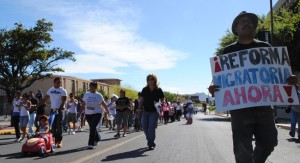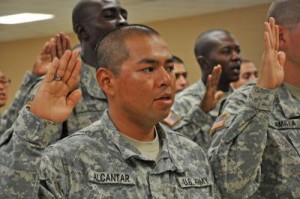Rival immigration reform plans could ignite Capitol Hill fireworks
|
By Basilisa Alonso
The comprehensive immigration reform proposal spread out Jan. 29 in Las Vegas by President Obama could eventually put as many as 11 million undocumented immigrants, about 80 percent of whom are Hispanic, on a path to U.S. citizenship. It is could also light up the sky with an awesome display of political fireworks by the Fourth of July. While Obama’s 25-minute televised speech was seen and heard by millions and then regurgitated and analyzed for days by print as well as broadcast media, its message was clearly directed to those 535 members of Congress who must sign off before it reaches his desk for signature. The stakes — the President’s reputation, the future viability of the Republican Party and the welfare of the Hispanic community — are enormous.


